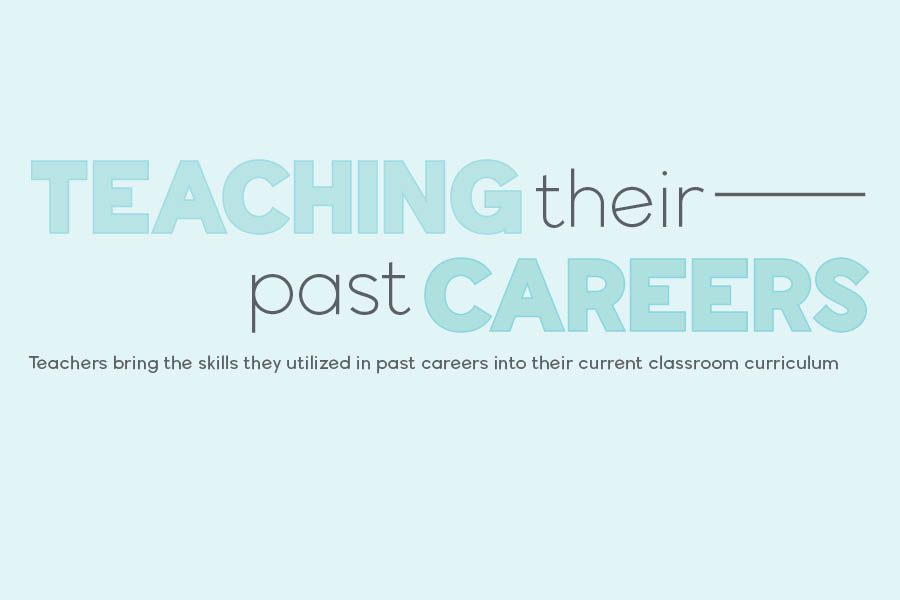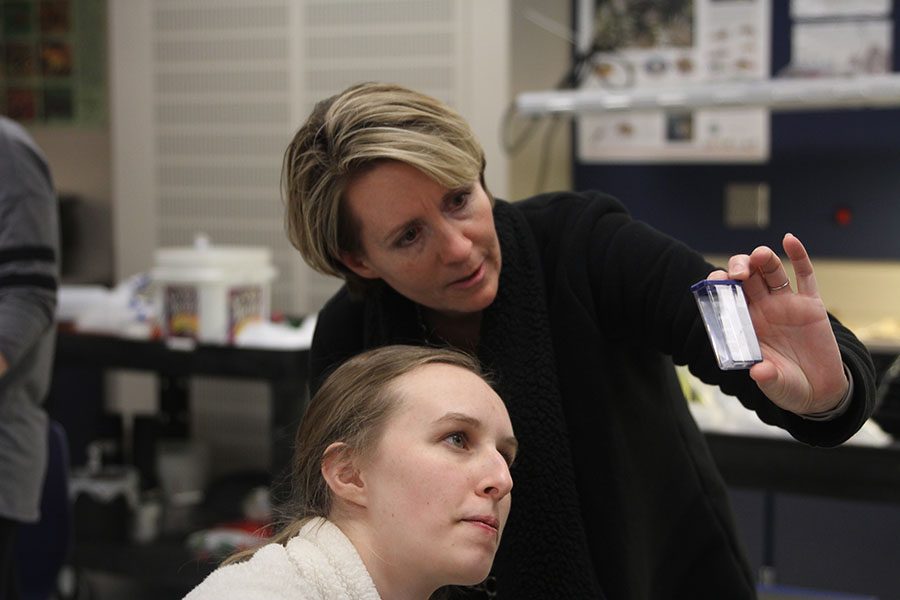Teachers use experiences from past careers in classroom
Teachers bring the skills they utilized in past careers into their current classroom curriculum
February 12, 2019
During a soil productivity lab in AP Environmental Science on Friday, Jan. 25, science teacher Julie Roberts helps senior Liz Fraka compare the phosphorus level of a soil sample.
Julie Roberts: Research Biologist
Examining samples using a microscope is typical science class fare, but for science teacher Julie Roberts, it brings back memories of her past as a researcher for Bayer CropScience.
While crop scientists study many things, Roberts’ research focused more on the aquatic side of things.
“Bayer CropScience develops products that go on crops, so my research was to ensure that the products that were being created were safe for the aquatic environment, or anything that lived in waterways, or to make sure that the product was not dangerous to them.” Roberts said.
Though lab work typically had a steady schedule, sometimes things were shaken.
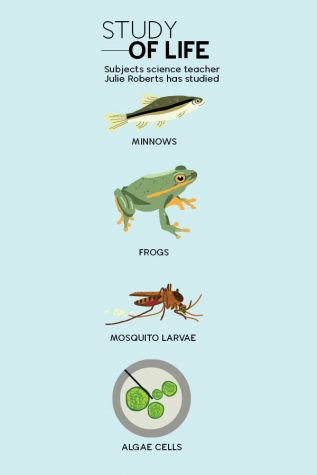
“My typical day was- I think I worked 7:30 to 4:30, but we rotated since we had live animals in the lab there always had to be somebody on call,” Roberts said.
Equipment used in studies could vary from project to project, according to Roberts
“It depends on the study, some of the research was done using microscopes, so I could spend a whole day working at a microscope,” Roberts said. “There were complicated dilution systems set up for working with smaller fish and sometimes frogs.
Out of the many studies and research projects Roberts has worked on, one stands out amongst the rest.
“One of the last things I was working on while I was there was establishing a standard test procedure for a type of water plant,” Roberts said, “That was kind of exciting because I was designing and coming up with an experiment that was going to be used on a worldwide basis. It’s kind of neat to be part of that from the ground up.”
Past experience working in the field can provide assistance when teaching, according to Roberts.
“I think having done the research being able to bring the knowledge of the laboratory equipment but also conducting experiments and writing them up [helps educate kids],” Roberts said, “Having the real life experience I think helps me to be able to educate and teach kids the way it would be done in the real world.”
Brian Rodkey: Engineer
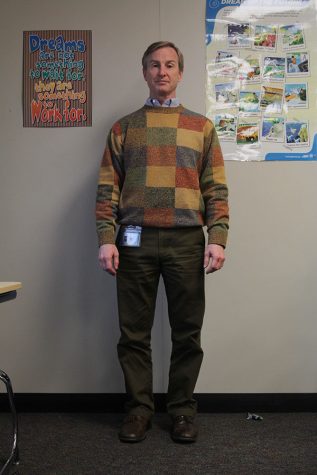 Previously working as an engineer at Honeywell, calculus teacher Brian Rodkey was able to take many of the principles from his past job and apply them to teaching math.
Previously working as an engineer at Honeywell, calculus teacher Brian Rodkey was able to take many of the principles from his past job and apply them to teaching math.
Engineering has always been an interest of Rodkey’s, and he wanted to use it to make a difference in society.
“I’ve always liked math and science and felt like that was a good fit,” Rodkey said. “I’ve always enjoyed taking things apart, knowing how they worked and I felt like what I wanted to do was try to make people’s lives better through technology.”
Rodkey said that when teaching, it is important to “understand something and communicate that,” in order to be successful.
“For example, what different voltages do [customers] need, how do they need that power, does it need to be filtered or not? Communicating things through teaching [is also important]. Trying to communicate an idea to students, taking concept and making it understandable to everybody in class,” Rodkey said. “The lecture is not the only part of the understanding, lecture, homework, quizzes, tests all go together to get the concept across and make it understandable to students.”
After working as an engineer for a while, Rodkey got to the point where he wanted to go into teaching, then he realized that was all he wanted to do.
“I got to the point where I felt like god’s call on my life was to teach, so that’s what I ended up wanted to do,” Rodkey said. “Then I had a great experience where I got a chance to go to Paris for around two weeks. We had designed the hardware for a flight management system … so I got to go over there to help interpret the document for [the French engineers] and answer questions that they had.”
Mary Beth Mattingly: Biochemist
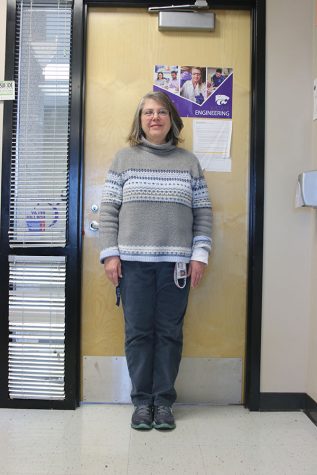 Extending her passion of biochemistry, chemistry teacher Mary Beth Mattingly was able to continue teaching what she loves.
Extending her passion of biochemistry, chemistry teacher Mary Beth Mattingly was able to continue teaching what she loves.
At the beginning of her teaching career, Mattingly got multiple jobs in the sought after university and hospital setting.
“When we lived in Virginia, I worked at Virginia Commonwealth University in their biochemistry labs,” Mattingly said. “Then I worked for a while in the Chicago area at the Veterans Administration Hospital and worked in endocrinology, looking at parathyroid hormones and [preformed] some radioimmunoassays. Then I taught chemistry for a while back at my old college.
While working at VCU, Mattingly mainly studied certain enzymes and how they would react when matched with a substrate.
“We looked at the active site of a particular enzyme called aspartate aminotransferase. We also looked at the signals as the substrate would go in, and how the enzyme would change, which are called transformational changes,” Mattingly said. “We looked at how the substrate would bind and how it affected the structure of the enzyme to see how the reaction went.”
When it comes to transferring skills from one profession to another, there is one key skill Mattingly still uses while teaching.
“[There isn’t] a lot in terms of technology of what I used to do, because unfortunately we don’t have an electron microscope, that would be nice! But, [It is important to] have patience with learning and trying to teach,” Mattingly said. “When you’re running experiments it doesn’t always work the first time. You have to be ready for trial two, trial three, and so on. You’ve got to do things many times over, and have the patience to do it.”
